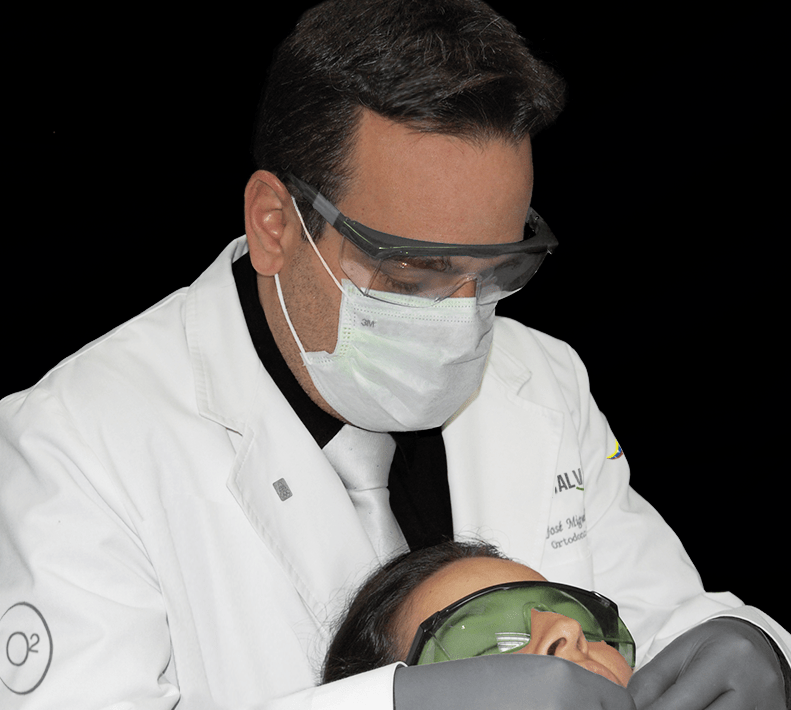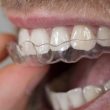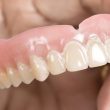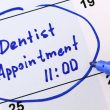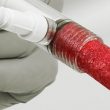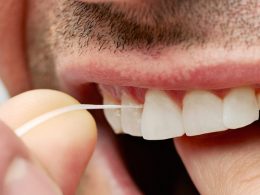Table of Contents
If you are not familiar with the different types of mouthwashes, you may now realize that the one you are using is not the best one, or you can simply find a better one. Choosing the most suitable type of mouthwash for you, can be a somewhat complicated task.
The personal care aisle of any store or supermarket, generally offers a very wide variety of mouthwash options, all with different indications and ingredients. To make your choice a little easier, here are some important considerations.
Broadly speaking, there are two types of mouthwashes: cosmetic and therapeutic. Cosmetic mouthwash can temporarily control bad breath and leave a pleasant taste in the mouth, but it has no chemical or biological utility beyond its temporary benefit.
Therapeutic mouthwash, by contrast, contains active ingredients intended to help control or reduce conditions such as bad breath, gingivitis, plaque, and tooth decay. Its active ingredients usually include: cetylpyridinium chloride, chlorhexidine, essential oils, fluorides and peroxides. Therapeutic mouthwash is available both over the counter and by prescription, depending on the professional formulation.
What Are Your Current Oral Health Conditions and Concerns?
Your current oral health condition plays a decisive role in product selection. Do you suffer from halitosis (bad breath) or xerostomia (dry mouth)? Do you have swollen gums or gingivitis? Are your teeth in good condition? Do you suffer from tooth sensitivity? All this information is more useful than it seems, but remember that, ideally, it should always be your trusted Dentist who indicates the most appropriate mouthwash for your particular case.
Bad Breath
Bad breath, also known as halitosis, can range from mild to severe and can be very compromising for the person who suffers from it. On many occasions it is an indicator of serious oral health problems, and even, general health ones. Therefore, a dental check-up and cleaning consultation with your Dentist is the most recommended in these cases.
As a complement, a cosmetic mouthwash should be included in the daily oral hygiene routine. The main objective of these rinses is to mask or disguise bad breath, since they do not address or solve the causes of it.
Cosmetic mouthwashes are great, for example, after you have smoked or eaten onion; to hide the smell. However, if bad breath is spontaneous and persistent, it can be a sign of bacterial infection, gingivitis, periodontitis, or other oral health problems. In this case, we must consider the use of antibacterial rinses, and of course, seek professional consultation to determine the cause of halitosis.
Dry Mouth (Xerostomia)
If you have a dry mouth, also known as xerostomia, you should avoid mouthwashes with alcohol. Alcohol further dries out the mouth, exacerbates symptoms, and increases discomfort.
If the amount of salivary flow does not increase in the short term, after having completely eliminated alcohol from your daily oral hygiene routine, you can opt for artificial saliva and rinses specially designed for dry mouth, but always after having ruled out completely the existence of any pathology at the level of the salivary glands and their excretory ducts.
Gingivitis and Gum Diseases
Whether you have them, are at risk for them, or simply want to prevent them; choose a mouthwash that has antiplaque, antibacterial, antimicrobial, and/or anti-inflammatory ingredients.
If your Dentist confirms that you have gingivitis or gum disease, he or she may prescribe or recommend a mouthwash with chlorhexidine, which will help you fight bacteria and restore your oral health, of course, as long as you practice proper brushing and flossing techniques.
When using chlorhexidine gluconate, it is very important to follow the instructions provided by the Specialist to the letter, since it is a delicate drug that in some cases, could cause a serious allergic reaction. In addition, it can irreversibly pigment teeth, adhesive restorations, dentures, and ceramic structures that have cracks on their surface.
Tooth Sensitivity
The sensitivity of the teeth can be an annoying and persistent symptomatology. However, there are mouthwashes capable of numbing, strengthening and/or sealing the tooth surface to reduce, or at least alleviate, hypersensitivity.
If you suffer from this problem, look for a product that includes potassium citrate, potassium nitrate, calcium phosphate, stannous fluoride, and/or sodium fluoride in its active ingredients.
Citrate and nitrate potassium anesthetize the dentin and nerves within the teeth. Calcium phosphate, sodium fluoride and stannous fluoride; strengthen the teeth and their surface, preventing stimuli from reaching the dentin easily.
Kids
Children should not use mouthwash if they are under the age of six, as their teeth are still forming and are vulnerable to fluorosis, a cosmetic problem that can damage the texture and color of the teeth. As an additional note, it is important to remember to keep the mouthwash out of the reach of children, as they may think it is a drink and not a mouthwash.
If you are looking for a single type of mouthwash for the whole family, or if you are looking for a mouthwash only for children over the age of 6, be sure to buy an alcohol-free mouthwash, as it can be very harmful if accidentally ingested.
Protection and Prevention
Even if the person does not have any oral health problems or concerns about it, it is certainly not a bad habit to use a mouthwash to protect their teeth and prevent some problems.
Look for mouthwashes that contain fluoride, which prevent tooth decay and strengthen tooth enamel. Using a mouthwash that contains antiplaque, antibacterial, antimicrobial, or anti-inflammatory ingredients is a good idea; as it can help prevent a number of serious dental problems such as gingivitis and gum disease, as long as, a good brushing technique and regular flossing are the mainstays of your oral hygiene routine.
Magisterial Formulas
A magisterial formula is a medicine prepared by the pharmacist, under medical prescription, for a particular patient. With them, the Dentist can individualize the components, proportions and concentrations of all the active ingredients of a mouthwash.
Although they are being used less and less, due to the wide variety of commercial presentations of mouthwashes that exist today, these formulations are still very useful and necessary, especially in the case of periodontal diseases. With such a rinse, it is possible for example; increase or decrease the concentration of chlorhexidine, add a specific antibiotic to the composition or modify the viscosity of the liquid to increase its adhesion to the surfaces.
What to Look for in a Mouthwash
While each mouthwash may be different in composition, most will include the following:
- Antimicrobial Agents Alcohol or other germicide agents to help kill bacteria and other germs that contribute to tooth decay and bad breath.
- Detergents To help dislodge and remove food debris and dental plaque.
- Flavors and Colors To improve their appearance and make them more pleasant to the sense of taste, always seeking to provide that pleasant sensation of fresh breath.
- Preservatives To prevent the growth of bacteria within the mouthwash itself.
- Water To dissolve the other components.
Regardless of what you want your mouthwash to do, a good tip is to look for the American Dental Association’s (ADA) seal of acceptance.
This seal denotes that the claims made on the packaging (whitening, antimicrobial, anti-plaque, etc.) have been tested and proven by the ADA, an independent scientific organization of the United States of America, country in which the vast majority of the corporations dedicated to the manufacture of oral hygiene products are based.
“Pleasant Smell and an Extraordinary Sensation of Fresh Breath, Are the Two Main Benefits that the Use of a Cosmetic Mouthwash Provides”.
DENTAL TIP
Other Considerations…
Always remember that mouthwashes are not a substitute for brushing, flossing, and regular dental checkups and cleanings. The function of mouthwash is limited to complementing the effects of a proper oral hygiene routine. You will do little to nothing with the mouthwash if you do not brush properly before or after use it!
The main benefits obtained by adopting an oral hygiene regimen that includes the use of mouthwash as a complement are:
- Fresher Breath Mouthwash can make your mouth feel fresher and smell better.
- Additional Protection Mainly against cavities and gum diseases. When using a fluoride mouthwash, do not dilute it with water, as this limits its ability to remineralize.
- Bactericidal Effect It can kill some bacteria that are left after brushing or that are concentrated in hard-to-reach areas.
Are You Facing an Unaffordable Quote for Dental Treatment?
Are you thinking of getting Cosmetic Dentistry or Dental Implants in Venezuela? The rising cost of dental care in many countries is driving the dental tourism movement as people seek more affordable dental work abroad. If you are facing an unaffordable quote for dental treatment in your home country, DENTAL VIP could be a much cheaper alternative with savings of 60% or more.
Every year thousands of international patients visit Caracas to take advantage of high quality healthcare at affordable prices. Dental procedures in Venezuela are on par with treatment provided in any “developed” country of the world. The cost, however, is significantly less.
At DENTAL VIP we offer a wide range of world class dental treatments such as dental implants, crowns and bridges, smile design, dental veneers, oral surgery and zygomatic implants; among others.
Furthermore, we are available to assist you with transfer and accommodation options while visiting Caracas for dental care. Contact us today and make your next treatment in Venezuela!
